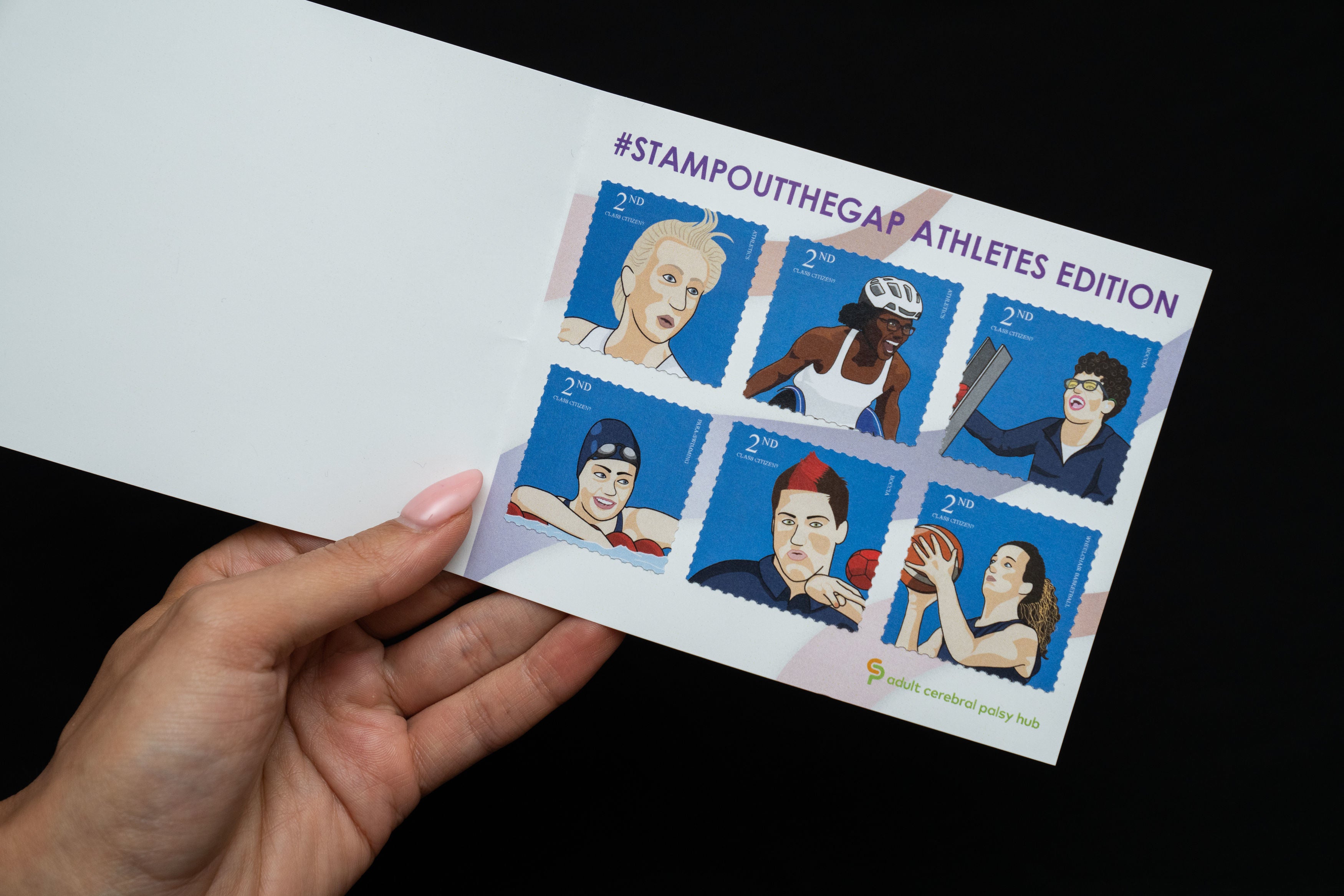Paralympians appear on mock second-class stamps to highlight health inequality
‘You shouldn’t have to be a world-class athlete to not be treated like a second-class citizen in healthcare’, says a spokesperson for Adult Cerebral Palsy Hub

A charity has created a series of mock second-class stamps using illustrations of GB Paralympians to raise awareness of the inequalities faced by people with cerebral palsy (CP).
The stamps, which include illustrations of boccia player David Smith, sprinter Georgina Hermitage and wheelchair athlete Kare Adenegan, were created by the charity Adult Cerebral Palsy Hub (Adult CP Hub), who are calling on the government to stamp out healthcare imbalances for people with the condition.
The group is asking for Nice (the National Institute for Health and Care Excellence) guidelines published in 2019 to be adopted across the NHS.
“Right now, most people with cerebral palsy are treated like second class-citizens when it comes to healthcare,” says Emma Livingstone of Adult CP Hub.
“At the age of 18, unlike for other lifelong health conditions, our joined-up care falls off a cliff.
“We want the government to create care parity for CP by ensuring the existing Nice guidelines are rolled out across the NHS.”
She adds that the change would make an “enormous difference” to the lives of those living with CP.
“It's such a simple ask, it can literally be written on the back of a stamp, yet it will make an enormous difference both to people and to the economy - helping all adults with CP live well, work well and age well,” she adds.
“You shouldn't have to be a world-class athlete to not be treated like a second-class citizen in healthcare.”
Three-time Paralympic champion and Paralympics GB closing ceremony flagbearer Mr Smith agrees.
“I am an exception in that being an athlete puts me in the fortunate position of having regular access to things like physiotherapy,” he says.
“Obviously not everyone is a world-class athlete but that's no reason not to have fair healthcare. It should be for everyone.”
Other athletes included on the stamps, which were designed by illustrator Eve Lacey, include boccia player Beth Moulam, swimmer Tully Kearney and wheelchair basketball player Siobhan Fitzpatrick.
The campaign can be supported by following @adultcphub and using #StampOutTheGap.
Cerebral palsy is the name for a group of lifelong conditions that affect movement and coordination.
According to the NHS, it’s caused by a problem with the brain that develops before, during or soon after birth.
Symptoms vary from person to person, with some people only experiencing minor problems, while others may be severely disabled.
There's currently no cure for CP, but treatments are available to help people with the condition be as active and independent as possible.
The condition affects about one in every 400 children in the UK.
Join our commenting forum
Join thought-provoking conversations, follow other Independent readers and see their replies
Comments